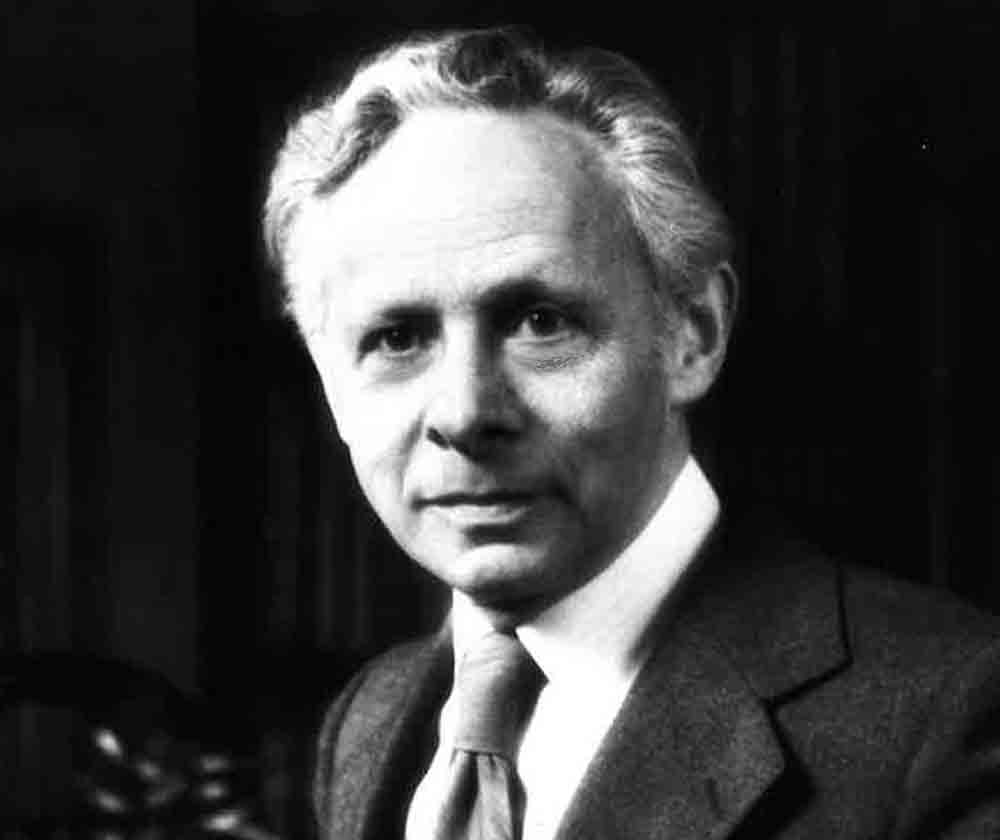Born in London in 1921, Tony Epstein studied medicine at Cambridge and the Middlesex Hospital, London. He specialised as a virologist and pathologist, studying the ways in which viruses cause disease. While still a research assistant, he worked on the so-called Rous Sarcoma virus from an unusual cancer that affects chickens, becoming very aware that viruses could cause cancer in animals.
In 1961 Tony attended a lecture by Denis Burkitt, a doctor working in Uganda. Burkitt described a peculiar cancer that he had observed. Tony spent the next couple of years trying to find a virus in the samples of these tumours, which was subsequently named "Burkitt’s Lymphoma". He and his newly appointed PhD student, Yvonne Barr, struggled fruitlessly with nothing to show for all their hard work.
The deadlock was broken when a biopsy-bearing flight from Kampala had to be diverted to Manchester because of fog. By the time the sample reached Tony, it had gone cloudy – usually a sign of bacterial contamination that would consign it to the bin. Tony did not throw it away but examined it carefully. He discovered, to his surprise, that the cloudiness was due to lymphoid tumour cells that had been shaken off the biopsy in transit and were now floating merrily in suspension. Tony exploited this chance finding to grow cell lines, derived from the tumour, in culture. He showed that these stayed alive indefinitely.
Tony’s Eureka moment soon followed. He put one of the cell lines under the electron microscope for the first time, and almost immediately saw a round blob that others would have dismissed as an artefact, but which he recognised instantly as a virus. He took a photograph that proved his hypothesis and made his name, and indeed that of the virus. Epstein, Barr and their colleague Bert Achong reported their discovery in the Lancet, three years and one week after Tony’s meeting with Burkitt. The paper is now a citation classic – the scientific equivalent of an Oscar.
The significance of the discovery lay in the first-hand evidence that a virus could cause a human cancer. The Epstein-Barr virus, or EBV, is now known to cause malignancies other than glandular fever and Burkitt’s Lymphoma – notably cancers at the back of the nose, especially in China, and tumours that develop in people who are immunosuppressed, either through AIDS or by treatment to prevent rejection of transplanted organs.
Aside from his scientific excellence, Tony was a true leader. During his career, he was Professor of Pathology at Bristol for 17 years, from 1968 to 1985, and Head of the Department of Pathology for the first 15 of those years. During his time as Head of Pathology, Tony transformed what had been a modest department, largely committed to NHS diagnostic functions and teaching, to one with a broader range of activities involving human and veterinary pathology and a broad spectrum of research enlivened by frequent departmental seminars and lectures. The department became Pathology and Microbiology in 1983 and still thrives as the current School of Cellular and Molecular Medicine with world-class virology research still very much front and centre of the school’s mission to "turn science into medicine".
Tony will be remembered at Bristol not only for the Epstein-Barr virus but for his leadership in a wide range of excellent research and teaching. Our annual lecture named in his honour will take on extra significance this year as we look to celebrate his outstanding contributions to science and to our University.
